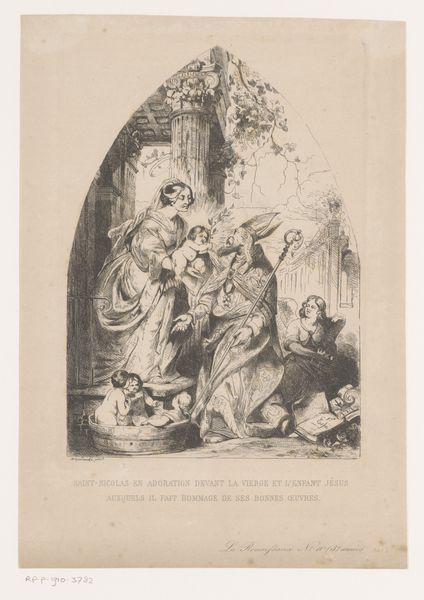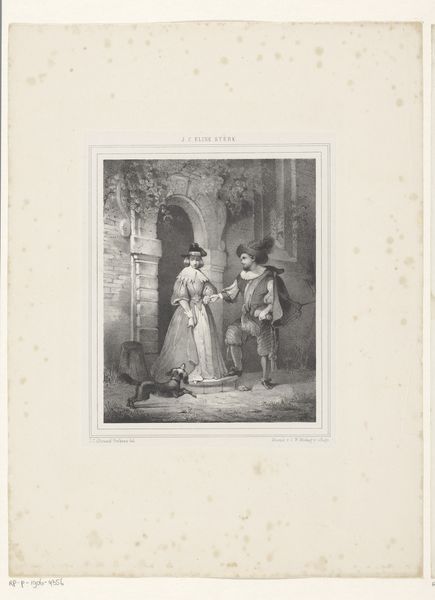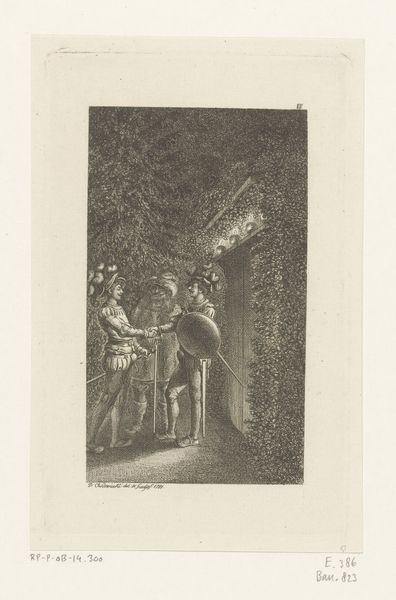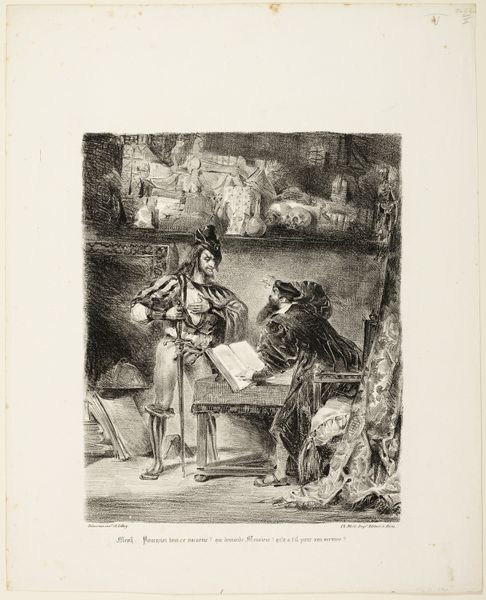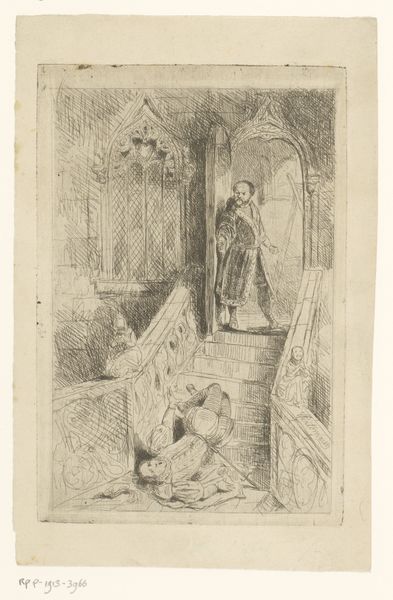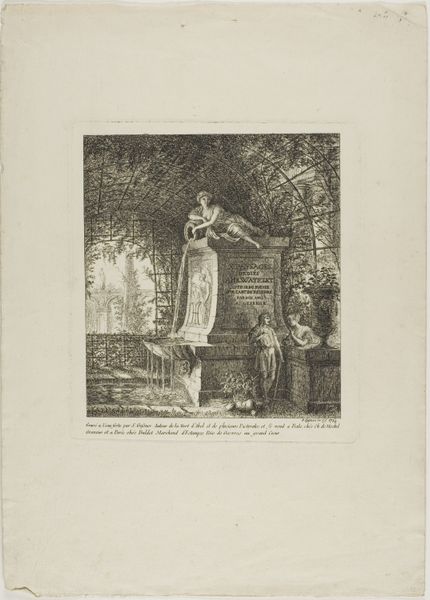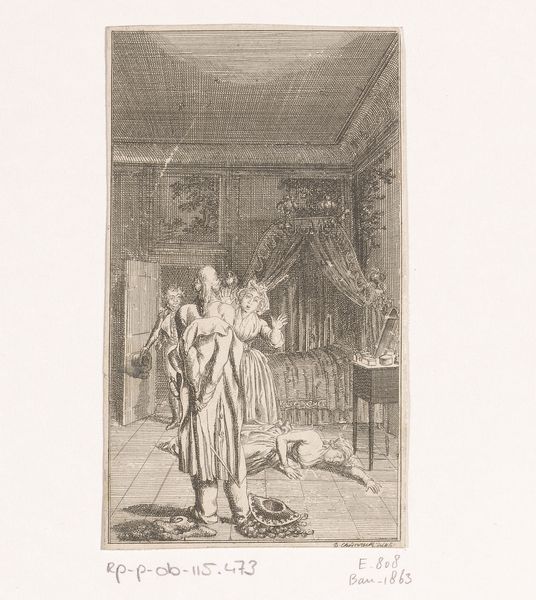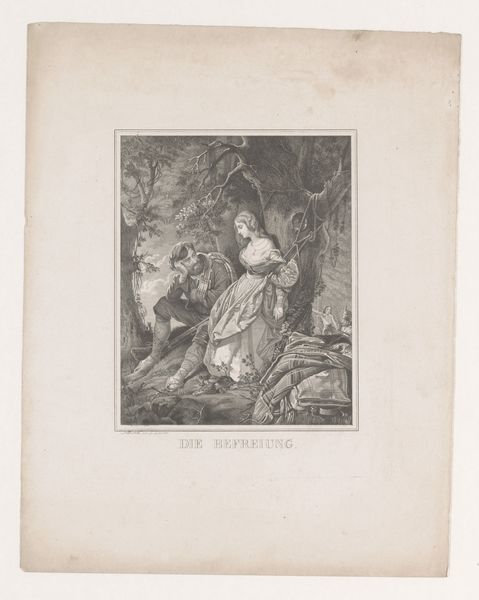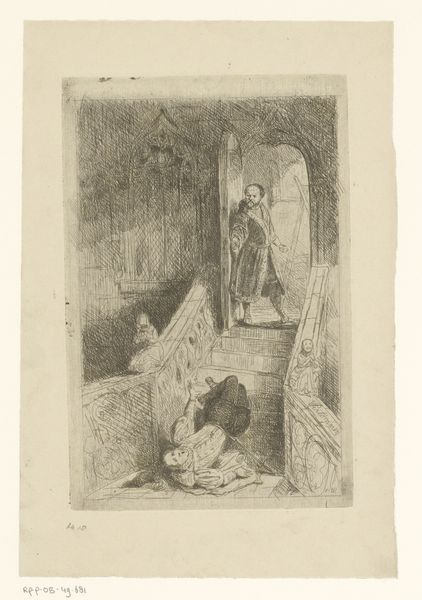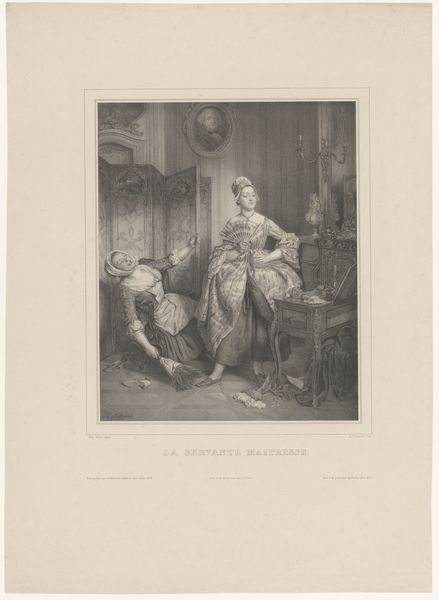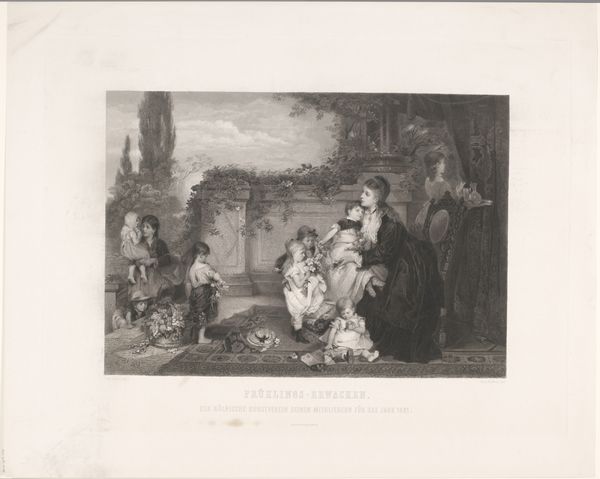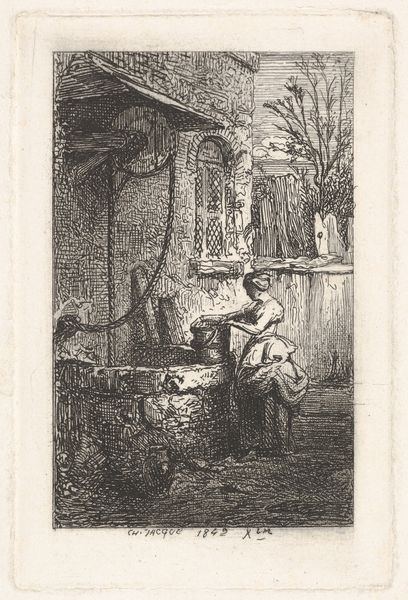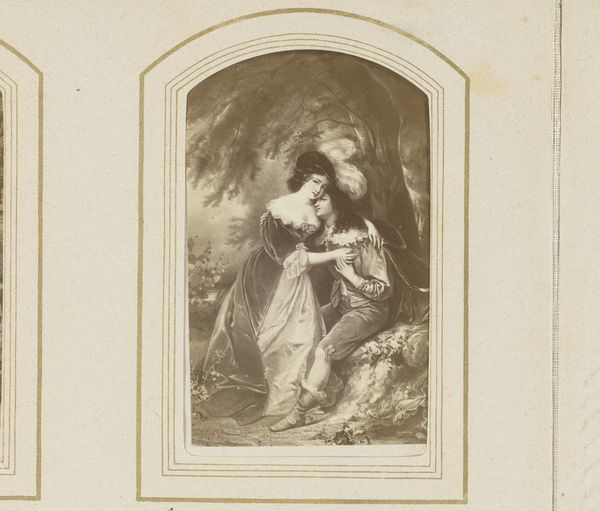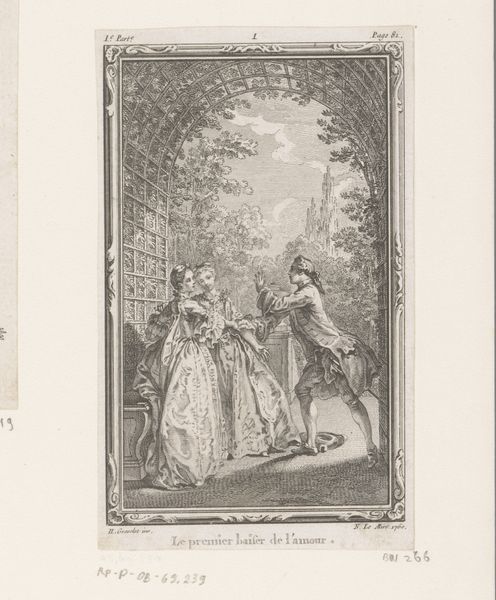
drawing, print, engraving
#
drawing
#
narrative-art
# print
#
old engraving style
#
landscape
#
figuration
#
romanticism
#
genre-painting
#
engraving
Dimensions: height 311 mm, width 246 mm
Copyright: Rijks Museum: Open Domain
Adolphe Mouilleron created this print of a page and richly dressed young woman at a doorway sometime in the mid-19th century. Its setting is a romanticized past, likely intended to evoke an image of French aristocracy, where even minor figures were adorned in finery. Mouilleron lived through a period of intense social and political upheaval in France, including the 1848 revolution. The print's focus on the aristocracy could be a comment on the social structures of his own time. Was Mouilleron a nostalgic conservative, looking back to a lost era of stability? Or perhaps he subtly critiques the opulence of the upper classes, contrasting it with the struggles of ordinary people? Uncovering Mouilleron's intentions requires delving into the cultural and political context of 19th-century France through newspapers, political pamphlets, and the records of art institutions. The meaning of art is always contingent on its social and institutional context, and historical research is crucial for understanding these connections.
Comments
No comments
Be the first to comment and join the conversation on the ultimate creative platform.
